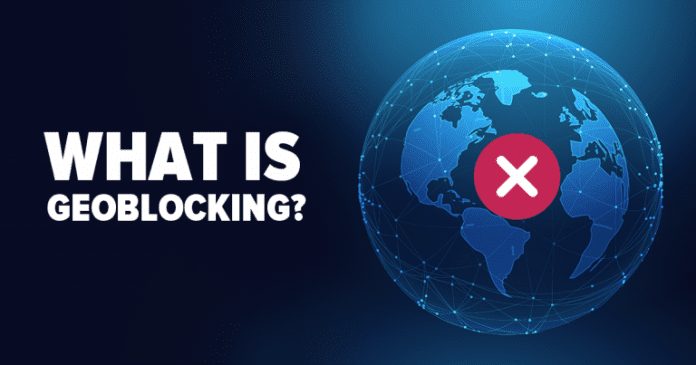One of the most frustrating things when traveling can be the limited content available when browsing the Internet.
Whether you’re visiting a major European nation or the likes of the Middle East and China, you’ll encounter issues with Netflix, social media platforms and even news sites.
That’s due to geoblocking and it comes into effect all over the planet. Below you’ll find all you need to know about geoblocking, including what it is and how you can get around it…
What is Geoblocking?

Geoblocking is a relatively simple concept to understand and is used by websites and companies to prevent content from being accessed outside a certain country or region.
This is done by recognizing the IP address and therefore the location of the browser. You will then find a message on a site that uses geoblocking explaining that you aren’t able to access the content for that very reason.
In the case of entertainment, this is usually due to licensing. For example, Netflix will have the rights to stream certain titles in certain countries, therefore the catalogs are different everywhere in the world. So, while you might be able to watch a particular drama in the USA, Netflix may not have the license to stream it in Australia. Therefore it won’t be available in their Australian catalog.
In other cases, it may be due to the fact that other countries don’t pay for the service. In the UK, the general public pay television licenses to fund the BBC, so in the case of their iPlayer service, which allows you to live stream the company’s shows, it’s free for residents of Britain, but unavailable to those outside as ultimately they don’t pay for it.
How To Get Around It…
Luckily there are ways around geoblocking and you can access any content you want in just a few steps.
This can be done by using a VPN, of which there are dozens available online to use, both free and for a small fee each month.
You’ll find many on this list of free VPN services, with sites like Windscribe and ProtonVPN among the most popular these days.
What they do is allow you to connect to a different server, with the IP address attached to a country elsewhere in the world. This then tricks the web address into believing you’re browsing from that particular location.
With VPNs, you can connect to a large number of servers from all over the world. So, for example, if you wanted to bypass geoblocking on the BBC iPlayer from, say France, then you would connect to the internet, sign-in to your VPN and choose a British server to browse from.
Then when you opened the iPlayer, the site would recognize an IP address coming from Britain and grant access.
In the case of Netflix, this will unlock the catalog of the country of the server rather than the one you’re geographically browsing from.
Where is Geoblocking Most Common?
Geoblocking is common throughout the world, particularly when it comes to media and streaming services.
However, you’ll also find a large number of geographical blocks are down to censorship, particularly in countries in the Middle East.
This can be particularly troubling for those working away in countries such as Saudi Arabia and UAE, where a business is booming but access to the internet is still relatively strict.
Below you’ll find some of the countries globally where geoblocking and censorship is most rife…
Iran

Iran is among the most censored countries, with many things blocked both in terms of entertainment, news and social media. That’s on top of all the regular geoblocks in place.
Both Facebook and Twitter have been banned in the country for around a decade, with many residents using VPNs to get around such blockages.
As well as this, any content with anti-governmental, religion or that go against the country’s moral code is also blocked, in some cases blocking pages from esteemed sites such as the New York Times and BBC.
China
China has some real wonders of the world, but its access to the internet is certainly one of them. For many the country is on the bucket list but you can certainly forget the online freedom afforded in many countries across the western world.
Again, Facebook is blocked alongside Google, meaning access to e-mail, maps, and the various other features it offers is blocked from access.
Anything that could be construed as against the values of the country is also redirected to pro-governmental sites. Such is the level of blocking in the country, it’s often referred to as the Great Firewall of China.
Vietnam

Vietnam sees a huge number of tourists flock to the nation every year, but the extent of censorship and geo-blocking within the nation is quite phenomenal.
You can access the likes of Google, Yahoo!, MSN and other major sites, but in order to do so, you are required to give your information to the government.
Anything that is considered against the beliefs of the government is blocked and the government themselves have been widely known to jail journalists and bloggers who ‘betrayed’ the nation.









